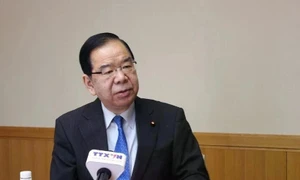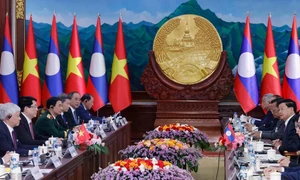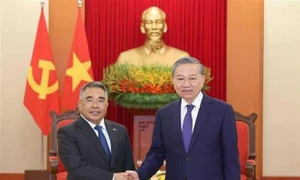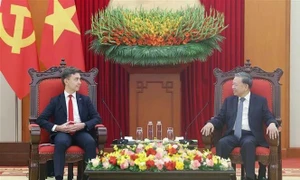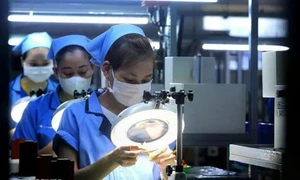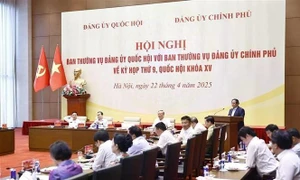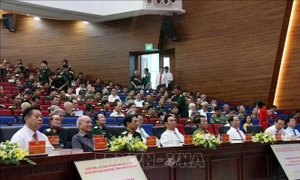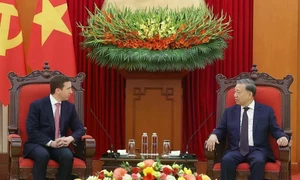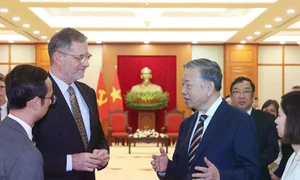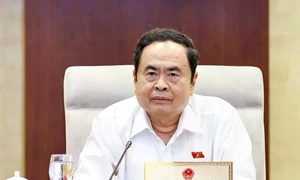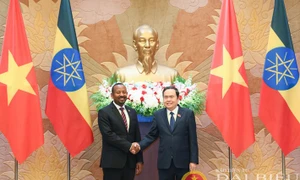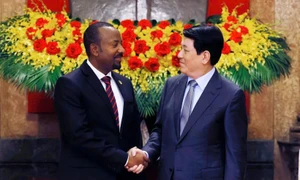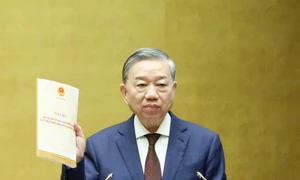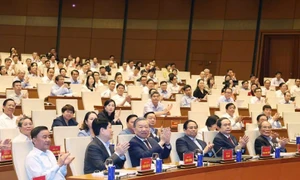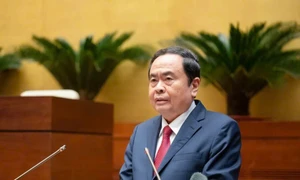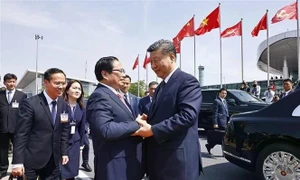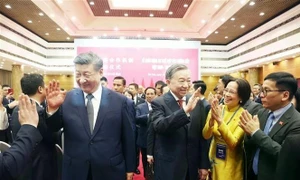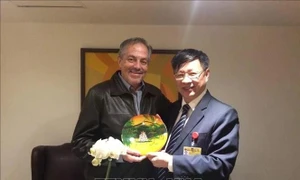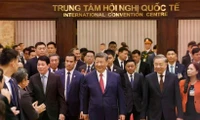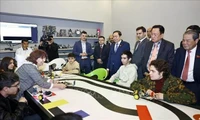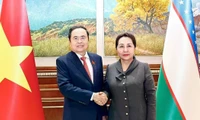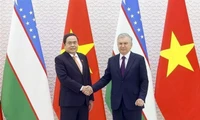President of the Republic of Bulgaria Rumen Radev and his spouse arrived in Hanoi on November 24 afternoon, beginning their official visit to Vietnam from November 24-28 at the invitation of President Luong Cuong.
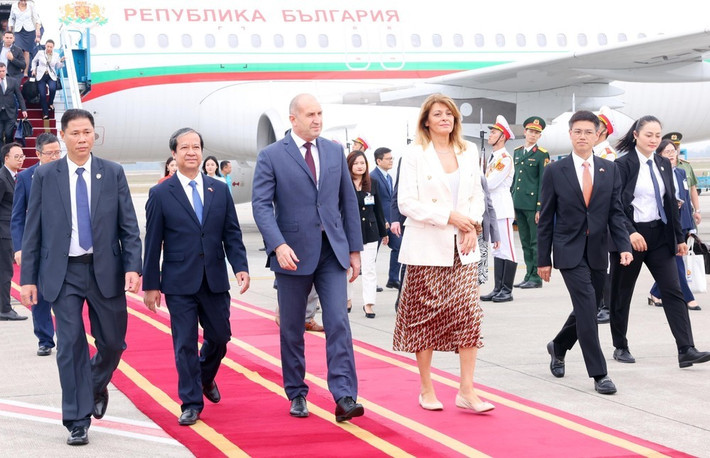
President of the Republic of Bulgaria Rumen Radev and his spouse arrived in Hanoi on November 24 afternoon, beginning their official visit to Vietnam from November 24-28 at the invitation of President Luong Cuong.
They were welcomed at the airport by Minister of Education and Training Nguyen Kim Son, Deputy Minister of Foreign Affairs Pham Thanh Binh, and Vietnamese Ambassador to Bulgaria Do Hoang Long, among others.
This is the first trip to Vietnam by a Bulgarian president in 11 years and also the first to the country by Rumen Radev since he took office in 2017.
According to Spokesperson of the Foreign Ministry Pham Thu Hang, the trip takes place amidst the robust development of the bilateral relations across multiple sectors. The bonds between the two countries officially began in 1950, when Bulgaria was one of the first nations worldwide to establish diplomatic relations with the Southeast Asian country.
Over the recent past, the two countries have maintained regular delegation exchanges, particularly at high level, as well as closely coordinated and supported each other at multilateral forums. They have seen progress in the economic and trade ties, with trade volume reaching 200 million USD a year during 2021-2023, nearly doubling the figure during 2019-2020.
Educational cooperation stands as a cornerstone of the bilateral relationship. Bulgaria has played a crucial role in Vietnam's human resources development, helping the country train 3,600 Vietnamese scientists and around 30,000 skilled technicians.
Labour cooperation is also a potential area while locality-to-locality collaboration has been bolstered with twinning ties established between localities of both nations./.
